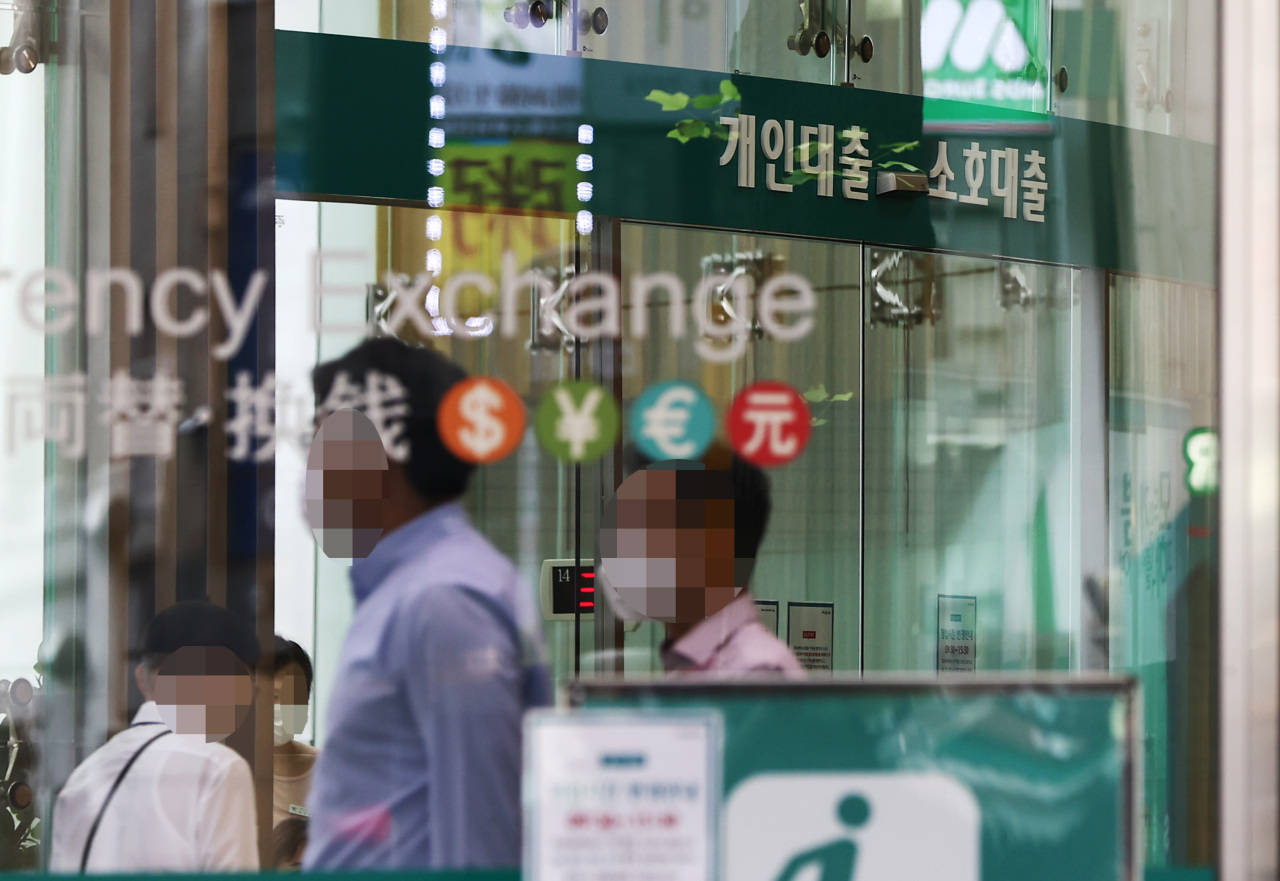Nonmonetary institutions expand loan supplies, while banks tighten grip over lending
Savings banks, insurers, e-payment firms roll out loan promotions throughout September
By Bae HyunjungPublished : Oct. 3, 2020 - 16:00

While Korea’s major lenders are gesturing to tighten their loan extensions in apparent response to financial authorities’ regulatory efforts, nonmonetary institutions are striving to expand their loan supplies, seeking to absorb market demand.
Several savings banks, insurers and e-payment service operators ran special promotional events throughout the last two weeks of September, ahead of the Chuseok holiday, offering cash back or other benefits to potential credit loan borrowers.
An example was e-payment service provider Kakao Pay, which said that it will pay a maximum of 1 million won ($852) in Kakao Pay money to users who borrow 5 million won or more, after verifying their credit line and interest rate through the service platform.
OK Savings Bank, the No. 2 player in the savings bank industry, offered an additional 1 percent interest rate cut until end-September to those who make an inquiry on their credit line before taking loans.
Insurers such as Hyundai Marine & Fire Insurance and Hanwha General Insurance also held lottery events, providing mobile gift cards or Starbucks coffee coupons to those who check on their insurance loan credit line.
These loan encouraging moves by nonmonetary institutions came as major lenders set to scaling down their loan extension volume.
The outstanding personal loans extended by the nation’s top five banks -- KB Kookmin, Shinhan, KEB Hana, Woori and NH NongHyup -- came to 126.9 trillion won on Sept. 17, down 243.6 billion won from the previous day.
During the first two weeks of the month, the balance had remained on a steady upturn as borrowers flocked to banks amid speculations that financial authorities would soon tighten loan regulations in a move to safeguard the nation’s fiscal soundness.
The banks’ latest move to tighten the grip over lending came as the watchdog Financial Supervisory Service required them to submit a credit loan risk management report by Sept. 25.
Concerns are also rising, however, that the nonmonetary circles’ loan promotions may add to the nation’s already record-high level of household debts, especially as the COVID-19 fallout continues to weigh upon ordinary people.
“The point (of these events) is not to recommend excessive lending but only to alleviate the financial burden of the borrowers who inevitably came to rely on loans amid the COVID-19 crisis,” said an industry official who declined to be identified.
“Also, as the customer groups of banking circles and nonmonetary institutions are fundamentally different, it is unlikely that customers will ‘spill over’ from major banks to the secondary market just because of tightened lending rules.”
By Bae Hyun-jung (tellme@heraldcorp.com)
Several savings banks, insurers and e-payment service operators ran special promotional events throughout the last two weeks of September, ahead of the Chuseok holiday, offering cash back or other benefits to potential credit loan borrowers.
An example was e-payment service provider Kakao Pay, which said that it will pay a maximum of 1 million won ($852) in Kakao Pay money to users who borrow 5 million won or more, after verifying their credit line and interest rate through the service platform.
OK Savings Bank, the No. 2 player in the savings bank industry, offered an additional 1 percent interest rate cut until end-September to those who make an inquiry on their credit line before taking loans.
Insurers such as Hyundai Marine & Fire Insurance and Hanwha General Insurance also held lottery events, providing mobile gift cards or Starbucks coffee coupons to those who check on their insurance loan credit line.
These loan encouraging moves by nonmonetary institutions came as major lenders set to scaling down their loan extension volume.
The outstanding personal loans extended by the nation’s top five banks -- KB Kookmin, Shinhan, KEB Hana, Woori and NH NongHyup -- came to 126.9 trillion won on Sept. 17, down 243.6 billion won from the previous day.
During the first two weeks of the month, the balance had remained on a steady upturn as borrowers flocked to banks amid speculations that financial authorities would soon tighten loan regulations in a move to safeguard the nation’s fiscal soundness.
The banks’ latest move to tighten the grip over lending came as the watchdog Financial Supervisory Service required them to submit a credit loan risk management report by Sept. 25.
Concerns are also rising, however, that the nonmonetary circles’ loan promotions may add to the nation’s already record-high level of household debts, especially as the COVID-19 fallout continues to weigh upon ordinary people.
“The point (of these events) is not to recommend excessive lending but only to alleviate the financial burden of the borrowers who inevitably came to rely on loans amid the COVID-19 crisis,” said an industry official who declined to be identified.
“Also, as the customer groups of banking circles and nonmonetary institutions are fundamentally different, it is unlikely that customers will ‘spill over’ from major banks to the secondary market just because of tightened lending rules.”
By Bae Hyun-jung (tellme@heraldcorp.com)


![[Exclusive] Korean military set to ban iPhones over 'security' concerns](http://res.heraldm.com/phpwas/restmb_idxmake.php?idx=644&simg=/content/image/2024/04/23/20240423050599_0.jpg&u=20240423183955)




![[Pressure points] Leggings in public: Fashion statement or social faux pas?](http://res.heraldm.com/phpwas/restmb_idxmake.php?idx=644&simg=/content/image/2024/04/23/20240423050669_0.jpg&u=)

![[Herald Interview] 'Amid aging population, Korea to invite more young professionals from overseas'](http://res.heraldm.com/phpwas/restmb_idxmake.php?idx=644&simg=/content/image/2024/04/24/20240424050844_0.jpg&u=20240424200058)








